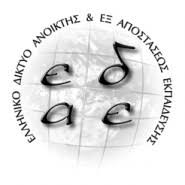Η καλλιέργεια κοινοτήτων πρακτικής σε στρατηγικούς τομείς, όπως η εκπαίδευση και οι επιχειρήσεις, είναι ένας πρακτικός τρόπος διαχείρισης της γνώσης ως στοιχείου που λόγω της αυξανόμενης πολυπλοκότητας και του γρήγορου ρυθμού αλλαγών και εξελίξεων χρήζει επικαιροποίησης, εξειδίκευσης και συνεργασίας. Η σύγχρονη εποχή απαιτεί από το άτομο όχι μόνο ένα ευρύ σώμα γνώσεων αλλά και μια σειρά από δεξιότητες, προκειμένου να συμβάλει αποτελεσματικά τόσο στη σφαίρα της πολιτικής και κοινωνικής ζωής όσο και στην οικονομική σφαίρα. Μια κοινότητα πρακτικής είναι ένα υποστηρικτικό περιβάλλον που δυνητικά μπορεί να συμβάλει στην ανάπτυξη της συνεργατικής μάθησης, της δια βίου εκπαίδευσης και της αξιοποίησης των νέων τεχνολογιών στην εκπαίδευση. Σκοπός της παρούσας ερευνητικής εκπαιδευτικής δράσης ήταν η καλλιέργεια δεξιοτήτων του 21ου αιώνα μέσα από τη δημιουργία και λειτουργία μιας κοινότητας πρακτικής σε σχολικό επίπεδο. Η εικονική επιχείρηση Lifeprint που δημιουργήθηκε χαρακτηρίζεται ως (ηλεκτρονική) κοινότητα πρακτικής μιας και συνέδεσε ανθρώπους κάτω από ένα σκοπό, παρείχε κοινό πλαίσιο διαμοιρασμού πληροφορίας, γνώσεων και εμπειριών, ενεργοποίησε το διάλογο, κατέγραψε υπάρχουσα γνώση και τις καλές πρακτικές, εισήγαγε συνεργατικές διαδικασίες, χρησιμοποίησε πληθώρα τεχνολογικών εργαλείων, παρήγαγε νέα γνώση και μετασχημάτισε την παλιά.
(EL)
Developing communities of practice in strategic areas, such as education and business, is a practical way of managing knowledge as an element that needs updating, specialization and collaboration due to its increasing complexity and rapid pace of change and development. The modern age requires from the individual to acquire not only a wide body of knowledge but also a wide range of skills, in order to contribute effectively to both the political and social life and the economic sphere. A community of practice is a supportive environment that can potentially contribute to the development of collaborative learning, lifelong learning and the use of new technologies in education. In the present research study, we discuss the utilisation of Communities of Practice theory to perceive, process and assimilate knowledge in a collective way. Each Community of Practice comprises a number of members who are linked together by a common end which defines the community’s identity. Delegation of tasks, communication channels and collective effort lead to the development of social and cognitive capital. These outcomes are reflected both in each separate member of the community and in the common reserve that is accumulated and passed on for future use. A range of practices constitute the transcendence of mere knowledge exchange among members and are expressed through activities like problem solving, information seeking, co-ordination and synergy, discussion, decision-making substantiation, knowledge mapping and pinpointing gaps in existing knowledge and practice. The Community of Practice individual and collective functioning makes for the development and fostering of strong cognitive, meta-cognitive, social and communicative skills, which are vital for the subject’s creative integration into 21st century demands. In the 2020-2021 academic year, Pierce, The American College of Greece, set up a Community of Practice comprising of 25 students. Junior Achievement Greece “Virtual Business” Educational Program, based on the “group experiential action” principle and addressing students aged 15-18 years, provided the wider pedagogic milieu in which Lifeprint virtual business moved. The group goal was to create an innovative product, setting up a virtual business with distinct business functions. The common business culture of the community members and the formation of vertical and horizontal groups with their respective forms of communication helped in every stage of its function and facilitated the transition from a community of practice that initially met in person to an online one due to the emergency health requirements. This hybrid Community of Practice was supported by a wide range of synchronous and asynchronous communication tools. The Lifeprint Community of Practice exhibits four distinct stages of functioning: a) creating a Community of Practice, drawing up a charter and approaching the concepts of innovation and entrepreneurship, b) choosing a product and setting up a virtual business, c) creating the product, making the Promo Video and drawing up the Business Plan, and d) holding the finals for the 10 best 2021 student businesses, business liquidation and skills and knowledge accreditation. The Lifeprint virtual business group functioned as a community of practice both at the learning and at the business level. The team members acquired, in an experiential way, the necessary hard skills in relation to all business functions, an achievement accredited by ESP (Entrepreneurial Skills Pass). Functioning within the Community, they cultivated computer literacy skills as well as soft skills, like co-operation, time management, empathy, leadership, constructive dialogue, negotiation and conflict resolution. All the aforementioned contributed to the successful course of the business, its qualification for the 10 best 2021 virtual businesses finals and its winning an award at Mobile Excellence Awards 2022.
(EN)
 Ελληνικό Δίκτυο Ανοικτής και εξ Αποστάσεως Εκπαίδευσης (ΕΔΑΕ)
Ελληνικό Δίκτυο Ανοικτής και εξ Αποστάσεως Εκπαίδευσης (ΕΔΑΕ)

